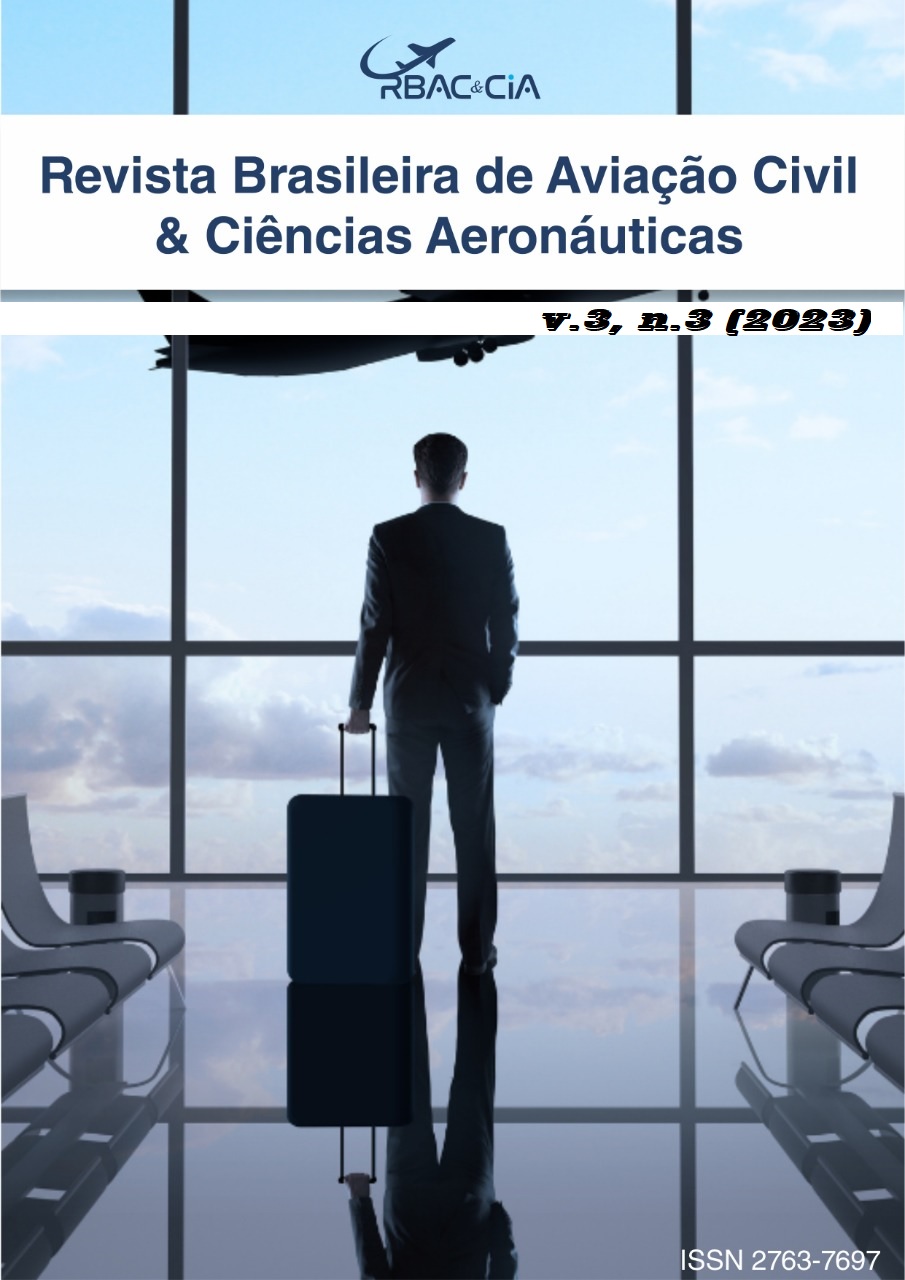INTERPRETAÇÃO DO RADAR METEOROLÓGICO E A TOMADA DE DECISÃO: UMA DISCUSSÃO ACERCA DO CONHECIMENTO ADQUIRIDO SOBRE METEOROLOGIA NOS CURSOS DE FORMAÇÃO DE PILOTO COMERCIAL NO BRASIL INTERPRETATION OF WEATHER RADAR AND DECISION MAKING: A DISCUSSION ABOUT THE METEOROLOGICAL KNOWLEDGE ACQUIRED IN COMMERCIAL PILOT TRAINING COURSES IN BRAZIL
Conteúdo do artigo principal
Resumo
O radar meteorológico de aeronaves é um equipamento de segurança operacional, haja vista sua utilização como ferramenta de auxílio na tomada de decisão em caso de meteorologia adversa. Partindo dessa premissa, o estudo teve como objetivo verificar se há lacunas nos ensinos teórico e prático sobre meteorologia aeronáutica e radar meteorológico no contexto do curso de piloto comercial no Brasil. A metodologia adotada na pesquisa é de abordagem qualitativa-quantitativa e natureza básica, utilizando-se de procedimentos bibliográficos, documentais e de pesquisa de campo, concretizada por meio da aplicação de questionário a 105 pilotos comerciais. Entre os resultados, verificou-se que a maior parte dos profissionais pesquisados (79%) não passou por treinamento com radar meteorológico durante o curso de formação, tendo aprendido a utilizá-lo ao longo de sua experiência profissional. Os dados ainda apontaram que essa deficiência no treinamento interferiu na capacidade do piloto (já licenciado) em julgar as condições meteorológicas com o uso do radar, sentindo-se inseguro ou com receio de tomar decisões. Diante dessa realidade, verificaram-se lacunas, especialmente no módulo teórico, no que se refere ao ensino de operação do radar meteorológico, sendo que o normativo da Agência Nacional de Aviação Civil sobre formação sequer faz menção a esse conteúdo nessa fase da instrução. Já no ensino prático, a norma apenas sugere o exercício voltado para o radar. Para superar essa deficiência, recomenda-se à ANAC e às escolas de formação incorporar aos currículos teórico e prático conteúdos sobre detalhamento, operação e prática do radar.
ABSTRACT
The aircraft weather radar is an operational safety equipment, considering its use as a tool in decision making in adverse weather conditions’ situations. Based on this premise, the study aimed to verify if there are gaps in both theoretical and practical teaching about aeronautical meteorology and weather radar in the context of the commercial pilot courses in Brazil. The methodology adopted has a qualitative-quantitative approach and a basic nature, using bibliographic and documental procedures, as well as field research, accomplished through a questionnaire application to 105 commercial pilots. Among the results, it was found that the majority of the surveyed professionals (79%) did not go through training with weather radar during the training course, and that they have learned to use it during their professional experience. The data also pointed out that this deficiency in training interfered with the ability of the pilot (already licensed) to judge weather conditions based on the radar, feeling insecure to make decisions. Given this reality, it is concluded that there are gaps, especially in the theoretical module, regarding the teaching of weather radar operation, and that regulatory agency (ANAC) standard about the theme does not even mention this content at this stage of instruction. In the practical instruction, the standard only suggests the exercise focused on radar usage. To overcome this deficiency, it is suggested to ANAC and training schools to incorporate radar detailing, operation and practice contents in the theoretical and practical curriculums.
.
Downloads
Detalhes do artigo

Este trabalho está licenciado sob uma licença Creative Commons Attribution 4.0 International License.
